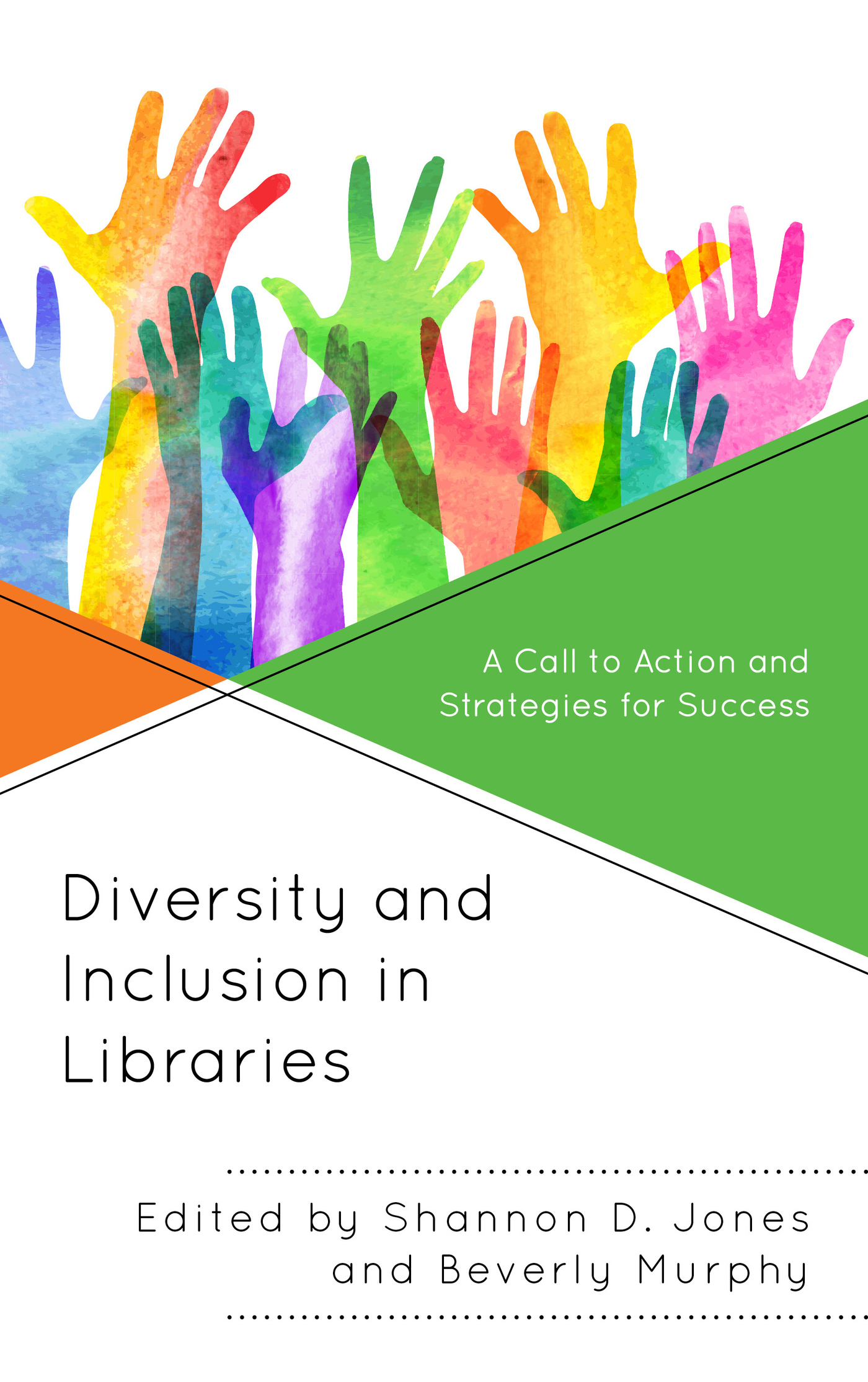Diversity and Inclusion in Libraries
Medical Library Association Books
The Medical Library Association (MLA) features books that showcase the expertise of health sciences librarians for other librarians and professionals.
MLA Books are excellent resources for librarians in hospitals, medical research practice, and other settings. These volumes will provide health care professionals and patients with accurate information that can improve outcomes and save lives.
Each book in the series has been overseen editorially since conception by the Medical Library Association Books Panel, composed of MLA members with expertise spanning the breadth of health sciences librarianship.
Medical Library Association Books Panel
Kristen L. Young, AHIP, chair
Dorothy Ogdon, AHIP, chair designate
Michel C. Atlas
Carolann Lee Curry
Kelsey Leonard, AHIP
Karen McElfresh, AHIP
JoLinda L. Thompson, AHIP
Heidi Heilemann, AHIP, board liaison
About the Medical Library Association
Founded in 1898, MLA is a 501(c)(3) nonprofit, educational organization of 3,500 individual and institutional members in the health sciences information field that provides lifelong educational opportunities, supports a knowledgebase of health information research, and works with a global network of partners to promote the importance of quality information for improved health to the health care community and the public.
Books in the Series
The Medical Library Association Guide to Providing Consumer and Patient Health Information, edited by Michele Spatz
Health Sciences Librarianship, edited by M. Sandra Wood
Curriculum-Based Library Instruction: From Cultivating Faculty Relationships to Assessment, edited by Amy Blevins and Megan Inman
The Small Library Managers Handbook, by Alice Graves
Mobile Technologies for Every Library, by Ann Whitney Gleason
The Medical Library Association Guide to Answering Questions about the Affordable Care Act, edited by Emily Vardell
Marketing for Special and Academic Libraries: A Planning and Best Practices Sourcebook, by Patricia Higginbottom and Valerie Gordon
Interprofessional Education and Medical Libraries: Partnering for Success, edited by Mary E. Edwards
Translating Expertise: The Librarians Role in Translational Research, edited by Marisa L. Conte
Expert Searching in the Google Age, by Terry Ann Jankowski
Digital Rights Management: The Librarians Guide, edited by Catherine A. Lemmer and Carla P. Wale
The Medical Library Association Guide to Data Management for Librarians, edited by Lisa Federer
Developing Librarian Competencies for the Digital Age, edited by Jeffrey Coghill and Roger Russell
New Methods of Teaching and Learning in Libraries, by Ann Whitney Gleason
Becoming a Powerhouse Librarian: How to Get Things Done Right the First Time, by Jamie Gray
Assembling the Pieces of a Systematic Review: A Guide for Librarians, edited by Margaret J. Foster and Sarah T. Jewell
Information and Innovation: A Natural Combination for Health Sciences Libraries, edited by Jean P. Shipman and Barbara A. Ulmer
The Library Staff Development Handbook: How to Maximize Your Librarys Most Important Resource, Mary Grace Flaherty
Transforming Medical Library Staff for the 21st Century, edited by Melanie J. Norton and Nathan Rupp
Health Sciences Collections Management for the Twenty-First Century, edited by Susan K. Kendall
The Medical Library Association Guide to Developing Consumer Health Collections, by Claire B. Joseph
Searching the Grey Literature: A Handbook for Finding Annual Reports, Working Papers, White Papers, Government Documents, and More, by Sarah Bonato
Transforming Health Sciences Library Spaces, edited by Alanna Campbell
3D Printing in Medical Libraries: A Crash Course in Supporting Innovation in Health Care, by Jennifer Herron
Diversity and Inclusion in Libraries: A Call to Action and Strategies for Success, edited by Shannon D. Jones and Beverly Murphy
Diversity and Inclusion in Libraries
A Call to Action and
Strategies for Success
Edited by
Shannon D. Jones
Beverly Murphy
ROWMAN & LITTLEFIELD
Lanham Boulder New York London
Published by Rowman & Littlefield
An imprint of The Rowman & Littlefield Publishing Group, Inc.
4501 Forbes Boulevard, Suite 200, Lanham, Maryland 20706
www.rowman.com
6 Tinworth Street, London SE11 5AL
Copyright 2019 by Medical Library Association
All rights reserved. No part of this book may be reproduced in any form or by any electronic or mechanical means, including information storage and retrieval systems, without written permission from the publisher, except by a reviewer who may quote passages in a review.
British Library Cataloguing in Publication Information Available
Library of Congress Cataloging-in-Publication Data
Names: Jones, Shannon D., 1974- editor. | Murphy, Beverly, 1957- editor.
Title: Diversity and inclusion in libraries : a call to action and strategies for success / edited by Shannon D. Jones, Beverly Murphy.
Description: Lanham : Rowman & Littlefield, [2019] | Series: Medical Library Association Books | Includes bibliographical references and index.
Identifiers: LCCN 2019010814 (print) | LCCN 2019012444 (ebook) | ISBN 9781538114407 (electronic) | ISBN 9781538114384 (cloth : alk. paper) | ISBN 9781538114391 (pbk. : alk. paper)
Subjects: LCSH: Minorities in library scienceUnited States. | Minority librariansUnited States. | Diversity in the workplaceUnited States. | Libraries and minoritiesUnited States. | Medical librariesUnited StatesEmployees.
Classification: LCC Z682.4.M56 (ebook) | LCC Z682.4.M56 D577 2019 (print) | DDC 023/.9dc23
LC record available at https://lccn.loc.gov/2019010814
 TM The paper used in this publication meets the minimum requirements of American National Standard for Information Sciences Permanence of Paper for Printed Library Materials, ANSI/NISO Z39.48-1992.
TM The paper used in this publication meets the minimum requirements of American National Standard for Information Sciences Permanence of Paper for Printed Library Materials, ANSI/NISO Z39.48-1992.
Printed in the United States of America
Preface
Libraries today are faced not only with acquiring, teaching, collecting, preserving, and distributing information to their patrons but also with issues of diversity and inclusion within their staff and the patrons they serve. By the year 2050, close to 50% of the U.S. population will be comprised of people of color (Broughton, 2008). In a recent study of public library staff and future librarians, Mary E. Brown found participants agreed that library staff should represent the diversity of the communities served; there was little support, however, for actively attempting to advance proportional representation through education or hiring (Brown, 2015).
Our rationale for serving as editors of this book is multifaceted and far reaching. As women of color, we share a common interest in diversity and inclusion issues and have worked diligently through networking, mentoring, workshops, and personal bonding to bring underrepresented populations into the library profession and particularly into medical librarianship. It is no secret that librarianship has traditionally been and continues to be a profession dominated by whiteness (Bourg, 2014; Branche, 2012; Galvan, 2015; Hall, 2012; Honma, 2006), which is a theoretical concept that can extend beyond the realities of racial privilege to a wide range of dominant ideologies based on gender identity, sexual orientation, class, and other categories (Hathcock, 2015). Though many libraries alike

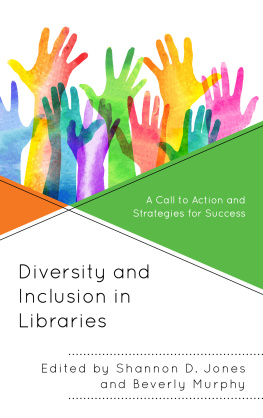
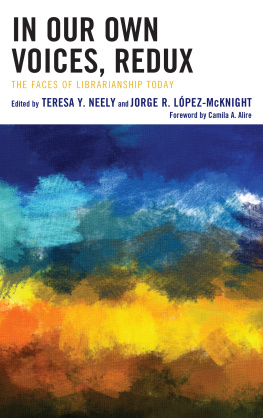

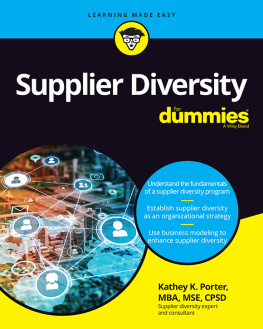
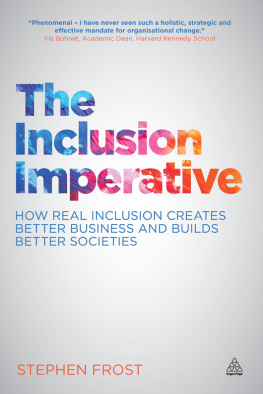
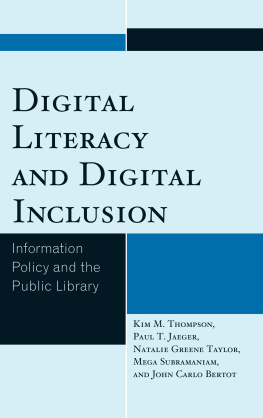
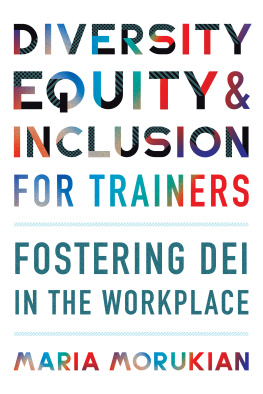
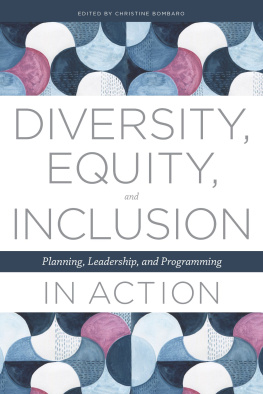
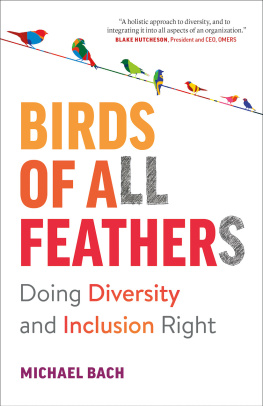

 TM The paper used in this publication meets the minimum requirements of American National Standard for Information Sciences Permanence of Paper for Printed Library Materials, ANSI/NISO Z39.48-1992.
TM The paper used in this publication meets the minimum requirements of American National Standard for Information Sciences Permanence of Paper for Printed Library Materials, ANSI/NISO Z39.48-1992.